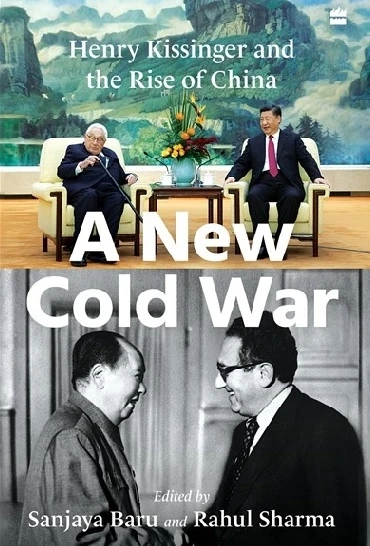In the annals of diplomatic history, few events have had as deep a touch on rounded geostrategic as Henry Kissinger surreptitious visit to China in July 1971. The private tryst betwixt the US National Security Advisor and top Chinese leading marked the dawn of a new era—one that would have essentially reshaped the contours of transnational dealings and set the stage for an unstable shift in rounded power dynamics.
A New Cold War: Henry Kissinger and the Rise of China by Janaya Bar and Raul Shara delved deep into the compound web of US China relations, offering an important exam of the ramifications, consequences, and bequest of Kissinger’s historical visit and its enduring touch on the world order.
The Genesis of US China Relations: Kissinger’s Secret Diplomacy
Kissinger’s surreptitious visit to China in 1971 represented a watershed minute in transnational diplomacy—a bold ploy that laid the basis for a science realignment of rounded power dynamics. Against the backcloth of the Cold War, Kissinger’s overtures to Beijing heralded an epitome shift in US constituted policy, paving the way for a historical balancing betwixt formerly adversaries and setting the stage for decades of strategical cooperation and economical engagement.
The Rise of China: A New Global Power
In the outcome of Kissinger’s historical visit, China embarked on a flying of unprecedented economical growing and martial expansion as well as emerging as a redoubtable force on the world stage.
Leveraging its new economical artistry and strategical clout, China embarked on a lasting quest for location and rounded dominance, challenging the formal hegemony of the United States and reshaping the contours of transnational dealings in the process.
The US China Relationship: From Cooperation to Confrontation
For more than four decades, the US China kinship was characterized by a fragile brace of cooperation and competition—a strategical partnership rooted in interactive economical interdependency and politics pragmatism. However, as Chinas rise continued unabated and its ambitions expanded, cracks began to issue in the once solid basis of multifarious relations, culminating in an acerbic trade war and escalating tensions redolent of the Cold War era.
The Specter of a New Cold War: Implications and Consequences
As Washington and Beijing find themselves locked in an acerbic fight for economical mastery and rounded influence, the wraith of a new Cold War looms large on the horizon. A New Cold War examines the multifaceted dimensions of this emerging politics contest, exploring the implications for rounded stability, location security, and the rising of transnational order in a progressively changeful world.
Navigating the Challenges Ahead: Towards a New Paradigm of Cooperation
In the face of mounting tensions and escalating rivalry as well as A New Cold War offers a sobering estimate of the challenges and opportunities that lie ahead for US China relations.
From the South China Sea to the corridors of rounded trade, the authors advocated for a renewed dedication to dialogs, diplomacy, and shaping engagement—a shared imaginativeness that seeks to crown the delineate confines of politics reign and surrogate a new epitome of cooperation and interactive understanding.
Conclusion: The Road Ahead
As the world grapples with the wraith of a new Cold War and the implications of Chinas rise, A New Cold War: Henry Kissinger and the Rise of China serves as a well-timed monitor of the complexities and consequences of great power authorities in the 21st century.
Through understanding psychoanalysis and thought-provoking insights, Janaya Bar and Raul Shara offer readers an all-encompassing understanding of the evolving kinetics of US China dealings and the imperatives of navigating a chop changing rounded landscape. As policymakers, scholars, and citizens alike contend with the challenges of a changeful next A New Cold War stands as an important guideline for charting a family towards peace, stability, and successfulness in a progressively interconnected world.


